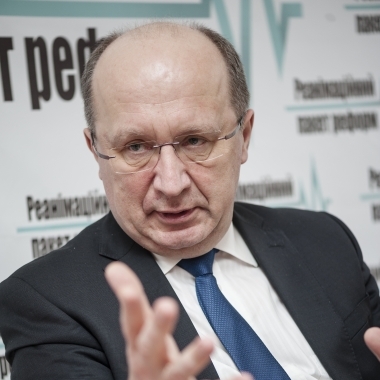Belarus: A trap for the Kremlin?
12 August 2020
Revolution is unfolding in Belarus. We just witnessed its first phase – Alyaksandr Lukashenka has been struck by a landslide defeat, with 60-80 percent of voters choosing Svyatlana Tsikhanouskaya. Lukashenka is trying to steal this victory from Belarusians, so the revolution continues in the streets and with strikes. People are going to the streets to defend their victory.
Some views can be heard in Lithuania and elsewhere in the West, that this revolution is useful for the Kremlin, that it may even have been orchestrated by the Kremlin’s secret service itself. Some believe that Lukashenka is the sole guarantor of the sovereignty of Belarus and that the alternative candidates are the Kremlin’s project. This way, the Kremlin wanted to weaken Lukashenka and drive him to beg for the Kremlin’s assistance, they say.
These are quite absurd conspiracy insinuations. The driving force of the Belarusian revolution is not one or another candidate, but the radical change within Belarusian society itself. A new civic nation has been born in Belarus. This civic nation is the true leader of the revolution, and Svyatlana Tsikhanouskaya is its symbol.
The unconscious, and totally wrong willingness to accept the continuation of Lukashenka’s rule in Belarus reminds me of the Sąjūdis era, more than 30 years ago. Back then some in the West would call on Lithuanians to “slow down” our pro-independence revolution, as it was harmful to Gorbachev. They would say to us ‘we have to preserve Gorbachev because he is the guarantor of perestroika, your revolution is damaging him’. It is only normal that we did not listen to such insinuations. It is good that today, Belarusians are not so keen either to listen to similar “advice”.
And now on to the main question – why, in my firm belief, is the Belarusian revolution nothing but a big headache and a nightmare for the Kremlin?
First, because the birth of the civic nation in Belarus is “contagious” for Russia. We see persistent protests in Khabarovsk, which are very similar to the ones in Belarus – without clear leadership or organisation, but still continuing. Important elections are approaching in Russia – regional elections this September and Duma elections next year. Vladimir Putin understands very well these processes in Belarus, and how they constitute a signal that the authoritarian regimes in the whole post-Soviet hemisphere are approaching their “expiry date”.
Second, Putin must be aware that he is entrapped: he cannot support the revolution in Belarus (because a similar revolution may start in Russia), which is why he congratulates Lukashenka. However, Lukashenka is as toxic for Belarusians as Yanukovych was for Ukrainians in 2013. Back then, Putin supported Yanukovych, occupied Crimea and part of the Donbas, and became the No. 1 enemy of the Ukrainian nation (“Putin – chuilo”). He actually “helped” Ukrainians to unite and choose the Western path of development.
The same may happen to Putin with regard to Belarus – he cannot support the revolution, but by supporting Lukashenka he would alienate all those who voted against Lukashenka, making them eager to look for friendship elsewhere, not in Moscow.
Putin “helped” to consolidate the pro-Western Ukraine. Ukraine has finally left the post-imperial realm of the Kremlin with Putin’s “help” in 2014. Now it’s Belarus’ turn.
It’s a zugzwang for the Kremlin – whatever it does, it’s bad: if it supports Lukashenka, it will alienate the Belarusian nation; if it supports the revolution in Belarus, a similar fate awaits in Russia.
Bad times for autocrats: in Minsk and in Moscow!
Zhyve Belarus!
ENJOYING THIS CONTENT
